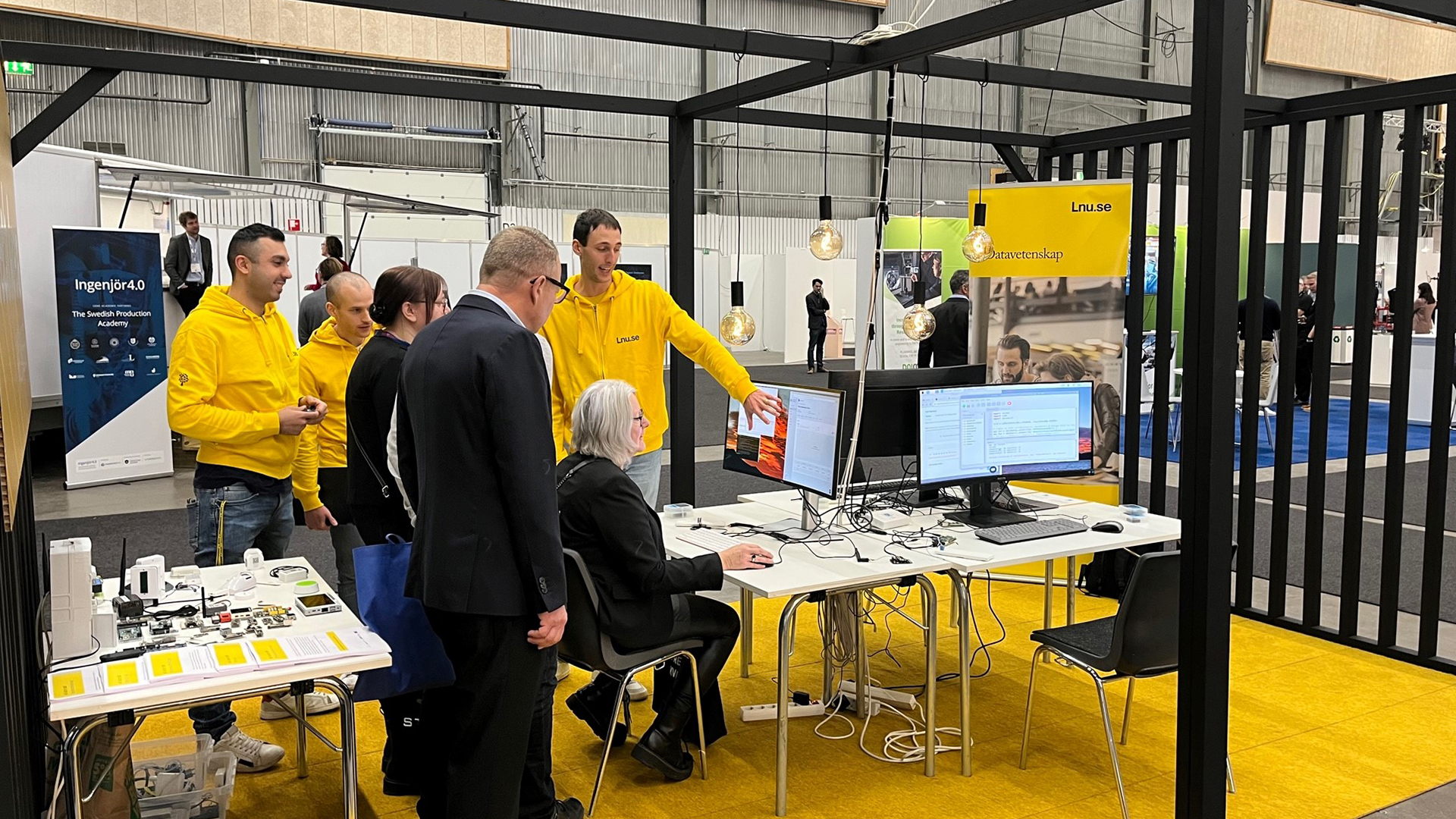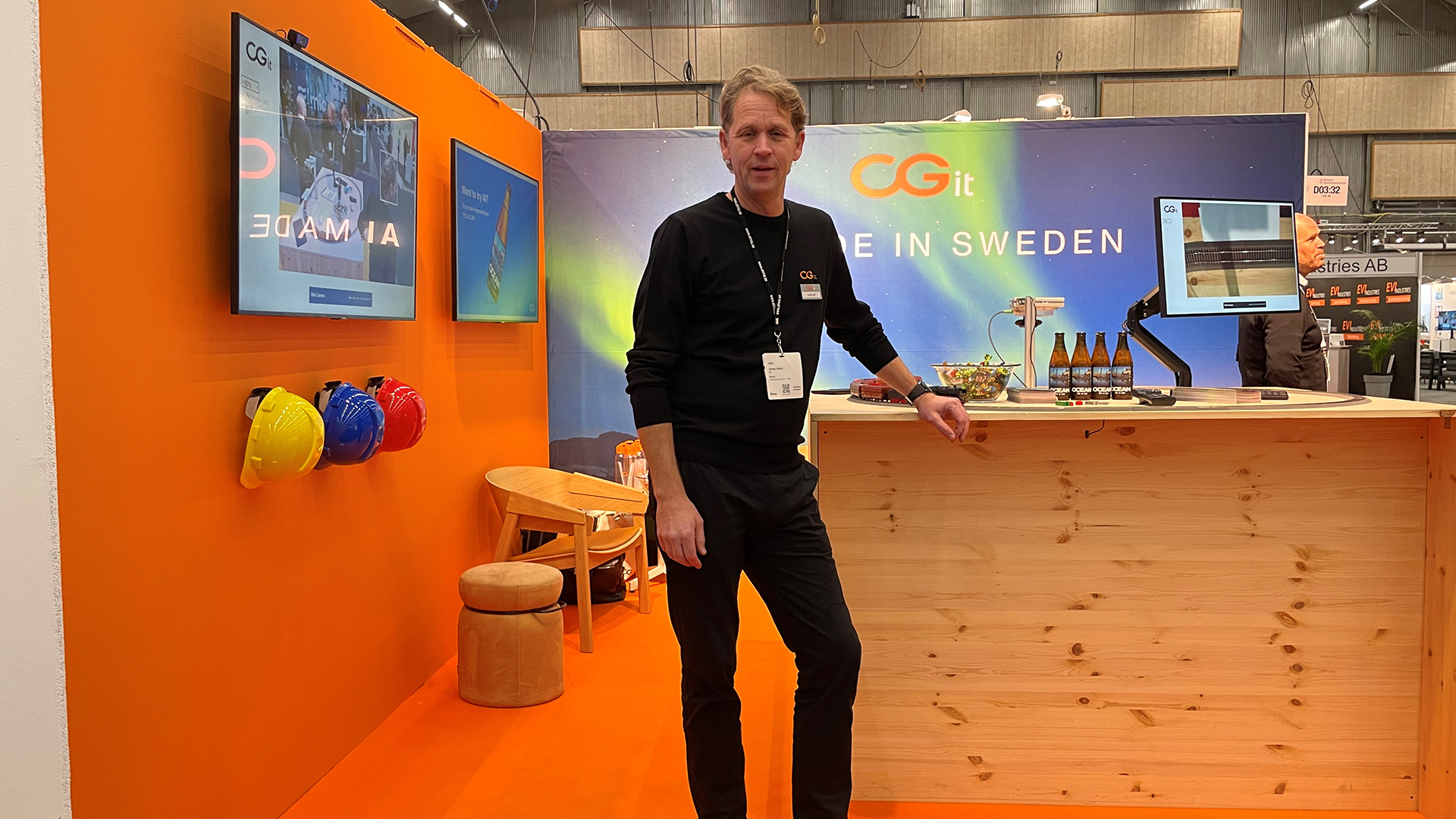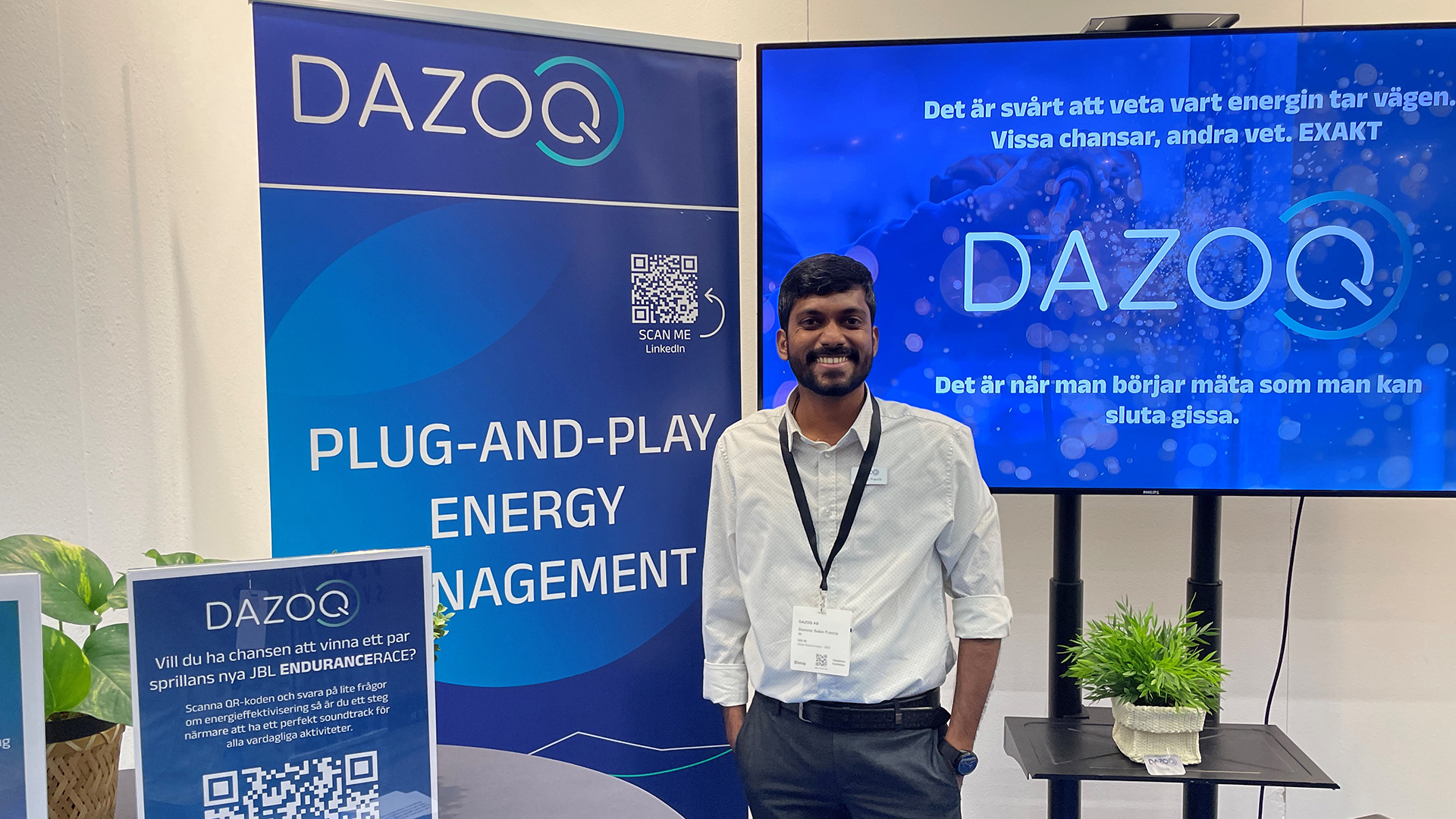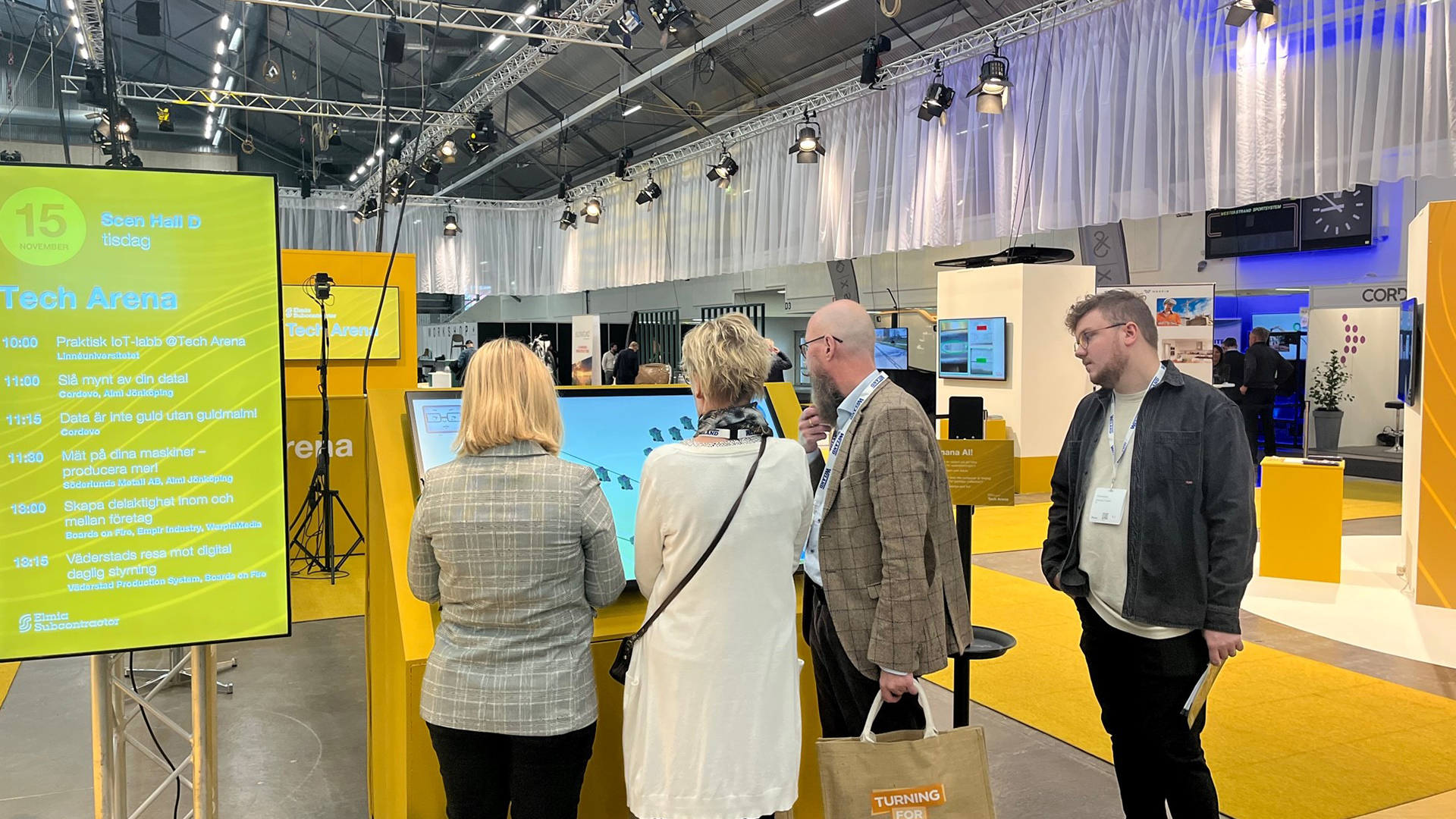Subcontractor Tech Arena – the next step in your technology journey

Tech Arena is unique in that every case highlighted is linked to an exhibitor with a stand nearby. If you find a case interesting, simply go and visit the company developing the technology to find out how it can benefit your business. The solution could relate to digital decision data for purchasing, knowledge transfer with Augmented Reality, or quality control using AI.
Three cases being highlighted at Subcontractor Tech Arena
“For us, it’s an opportunity to show the manufacturing industry what technology is available. IT companies like us have a responsibility, and part of that is to educate small and medium-sized industrial companies about AI. And it’s a serious responsibility too: if we can’t communicate in a way that’s easy to understand, nine times out of ten something will go wrong,” says Jonas Vallin, Business Development Manager for AI at CGit, one of the exhibitors at Subcontractor Tech Arena.

Jonas Vallin, Business Development Manager for AI at CGit, says that the company’s mission at Subcontractor Tech Arena is largely about educating visitors about AI, and helping them to understand how they can implement the technology in their processes.
AI boosts your competitiveness
The case being highlighted by CGit is an AI model for detecting surface faults and defects. It uses image data and sensors to perform inspections and classifications in real time. It all began with a problem that a customer had in production – but if the customer doesn’t understand the technology, it’s very hard to know what problems can be solved using AI.
“There are two negative misconceptions we need to rectify when it comes to AI. Firstly, it’s not some kind of Chinese system of mass surveillance, and secondly it’s not Terminator 4.0. That’s not what AI is about at all. It’s fundamentally about helping companies to be competitive,” says Vallin.
Digital solutions for energy efficiency
The focus at Subcontractor Tech Arena is to show successful, innovative cases from companies that are working to make industry digitally smarter. One such case that’s highly relevant at the moment relates to digital monitoring of energy use. The company Dazoq has developed a cloud-based system that not only measures electricity consumption using wireless sensors, but also visualises it simply in real time. The aim is to spot energy villains and energy waste in the manufacturing process.
“Our customers save 10 per cent of their energy use on average. In fact we have customers exhibiting here at Elmia Subcontractor who have saved up to 30 per cent. The unique aspect of our system is that measurement is up and running in just one day,” says Dominic Francis, co-founder of Dazoq.

Dominic Francis, co-founder of Dazoq, is showing a cloud-based system for energy efficiency in manufacturing processes.
Hands-on in workshops
As well as focusing on concrete cases, visitors can also listen to the daily talks given by exhibitors, or take part in IoT workshops organised by Linnæus University.
“Our workshops are for everyone with any kind of interest in IoT technology. Simply come along and talk to us if you have any questions or thoughts about how to implement IoT in your company. It’s a real jungle out there, with thousands of different options, and we can offer independent advice and recommendations. We’re not selling anything – our aim is to strengthen small and medium-sized companies in Sweden,” says Fredrik Ahlgren, Senior Lecturer at Linnæus University.
Build your own IoT prototype
At the workshop, you can try and learn about IoT sensors based on LoRaWAN, for example. And why not try adding a sensor to a network server, or visualising the data online? You can also build your own IoT prototype with a microcontroller and your choice of sensor.
“We think the workshop will appeal to all kinds of visitors and exhibitors at Elmia Subcontractor. It’s hands-on every day. We do have a workshop timetable, but there are people here the whole time so just come along. We’ll also be talking more about this on stage on Wednesday afternoon, where we’ll be highlighting our collaboration with the fifteen companies we’ve worked with in Kronoberg and Kalmar counties,” says Ahlgren.
